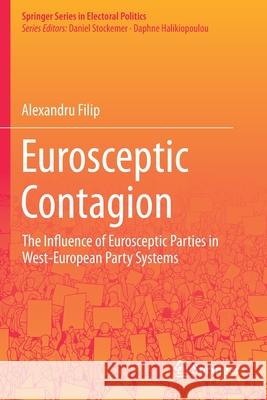Eurosceptic Contagion: The Influence of Eurosceptic Parties in West-European Party Systems » książka
topmenu
Eurosceptic Contagion: The Influence of Eurosceptic Parties in West-European Party Systems
ISBN-13: 9783030690380 / Angielski / Miękka / 2022 / 236 str.
Eurosceptic Contagion: The Influence of Eurosceptic Parties in West-European Party Systems
ISBN-13: 9783030690380 / Angielski / Miękka / 2022 / 236 str.
cena 523,30
(netto: 498,38 VAT: 5%)
Najniższa cena z 30 dni: 501,19
(netto: 498,38 VAT: 5%)
Najniższa cena z 30 dni: 501,19
Termin realizacji zamówienia:
ok. 22 dni roboczych
Dostawa w 2026 r.
ok. 22 dni roboczych
Dostawa w 2026 r.
Darmowa dostawa!
In light of the growing support for populist political actors, this book examines political party behavior and political positions towards the integration process in the European Union. It explores the correlation between eurosceptic success and mainstream party behavior.
Presenting both an indepth empirical investigation of electoral campaigns and the politics of party leaders, as well as applying various theoretical models, the author analyses different eurosceptical trends and circumstances and dynamics of eurosceptic contagion. In particular, he addresses the following questions: Do Europe's mainstream parties maintain their standard discourse and policy positions unaltered, or are they forced to qualify their typical pro-integration stances when eurosceptic challengers are successful at the ballot box? Are some parties or party systems more susceptible to eurosceptic “contagion” than others? These are just some of the timely questions that are examined by the author.
The book argues that political parties at the ideological center of their party systems use the electoral success of eurosceptic parties as indications of changes in the public’s political preferences. In order to avoid losing voters to these parties, moderate parties will qualify their positions on the issue of EU integration. The author explores these dynamics and discusses their implications for the future of European integration.











